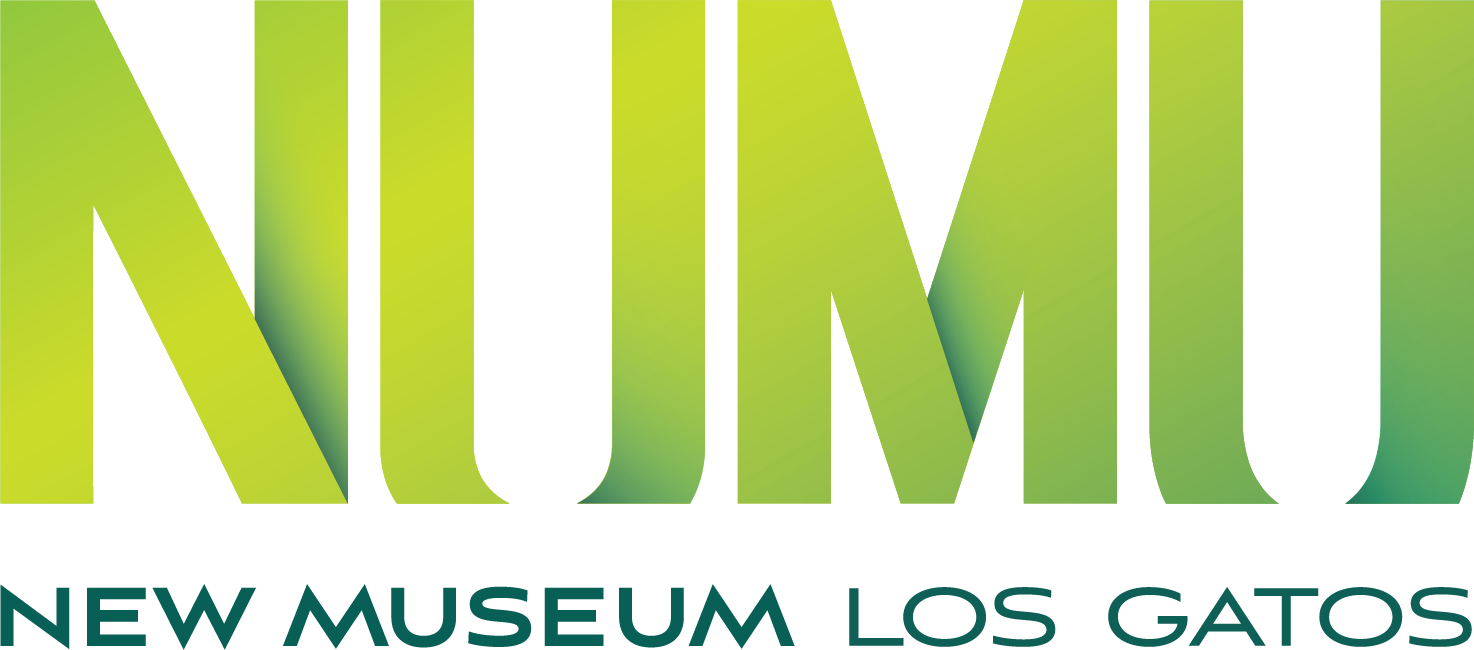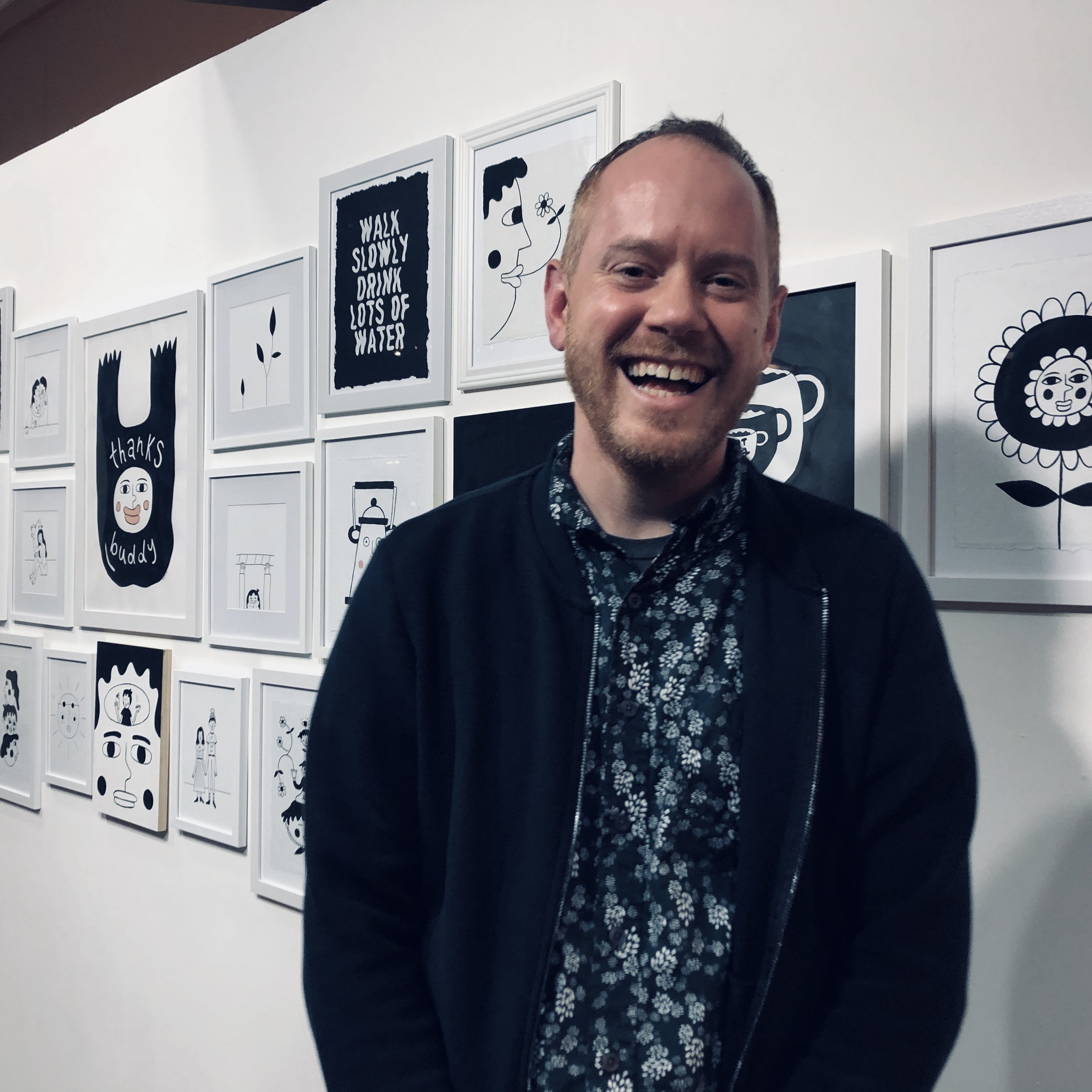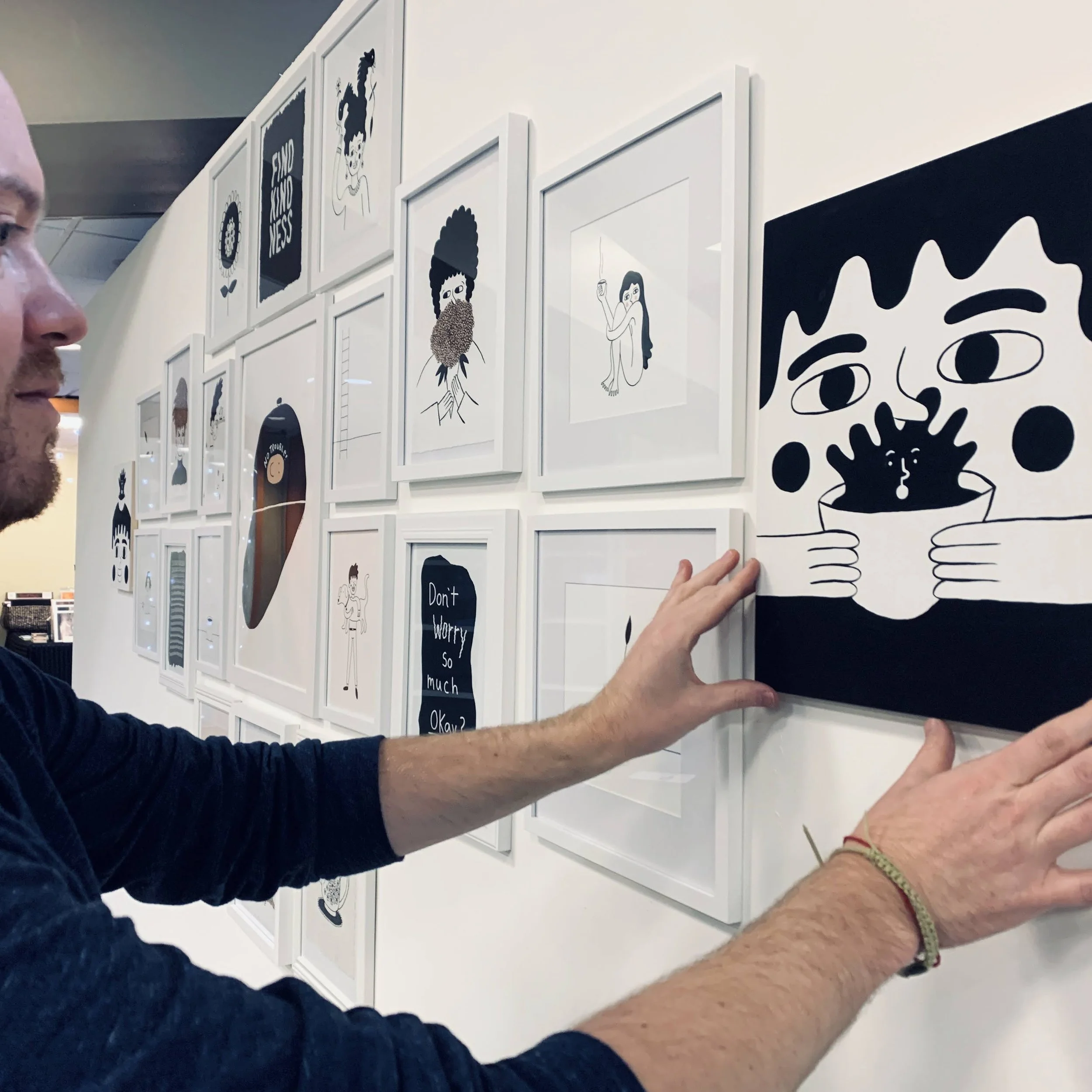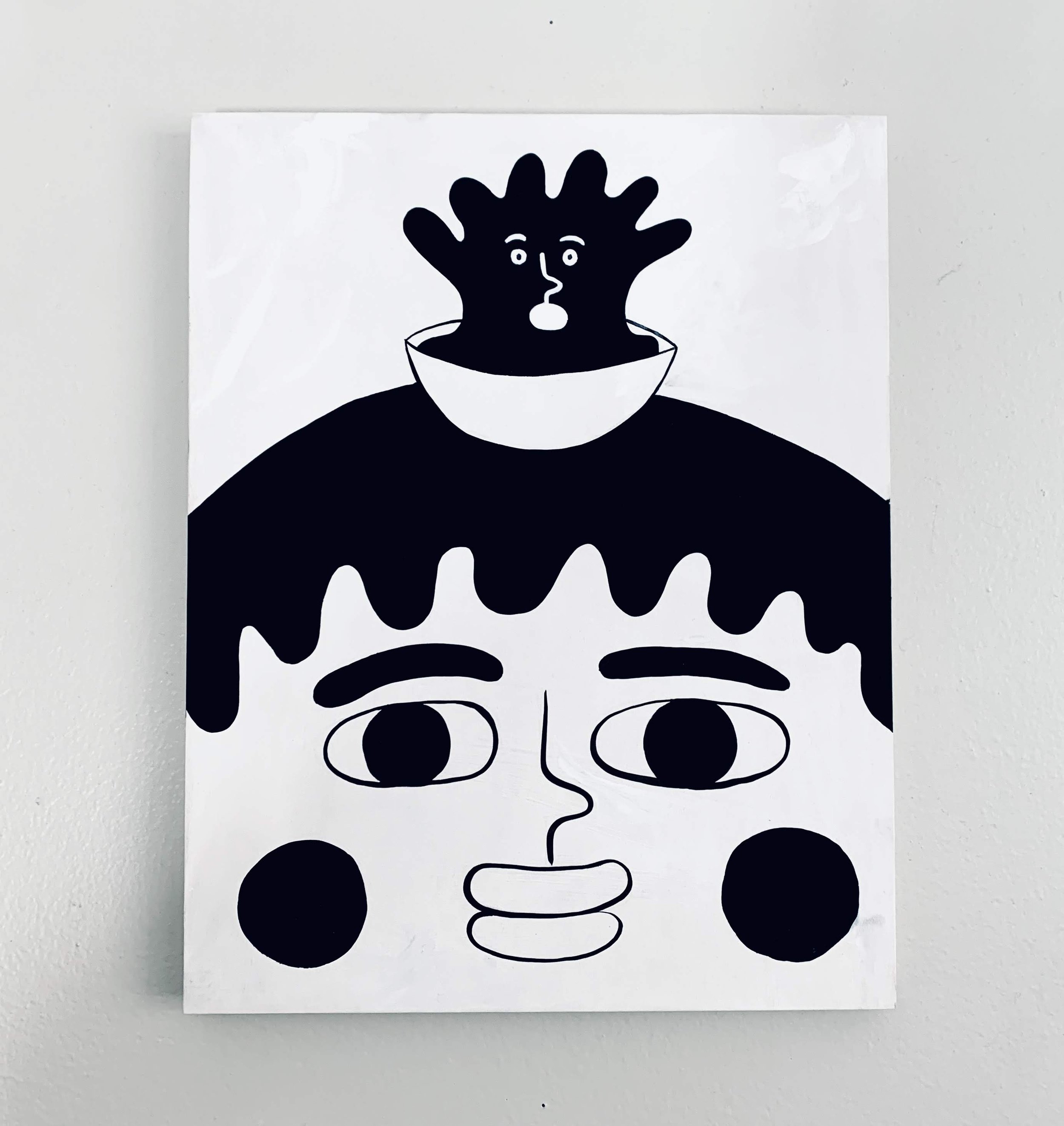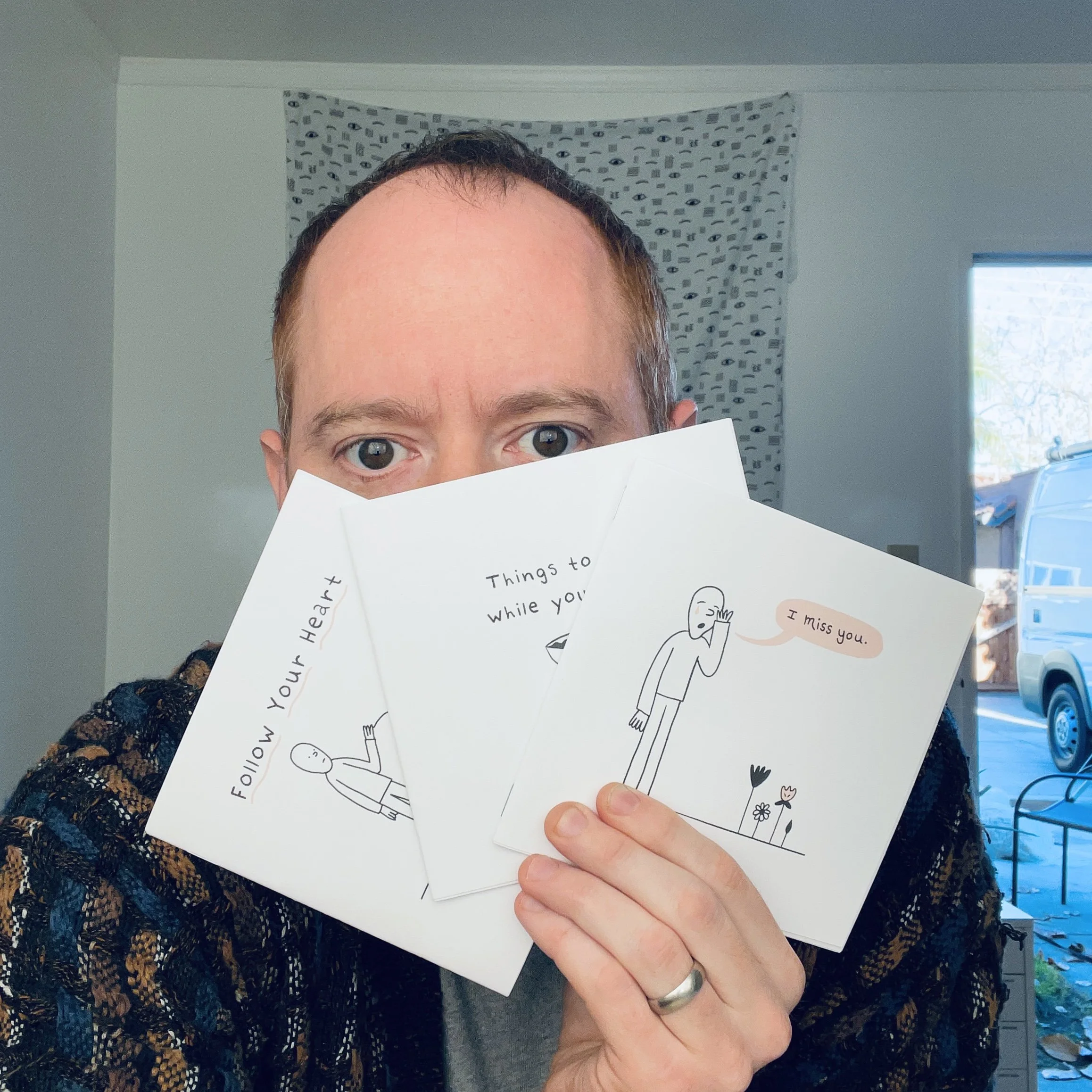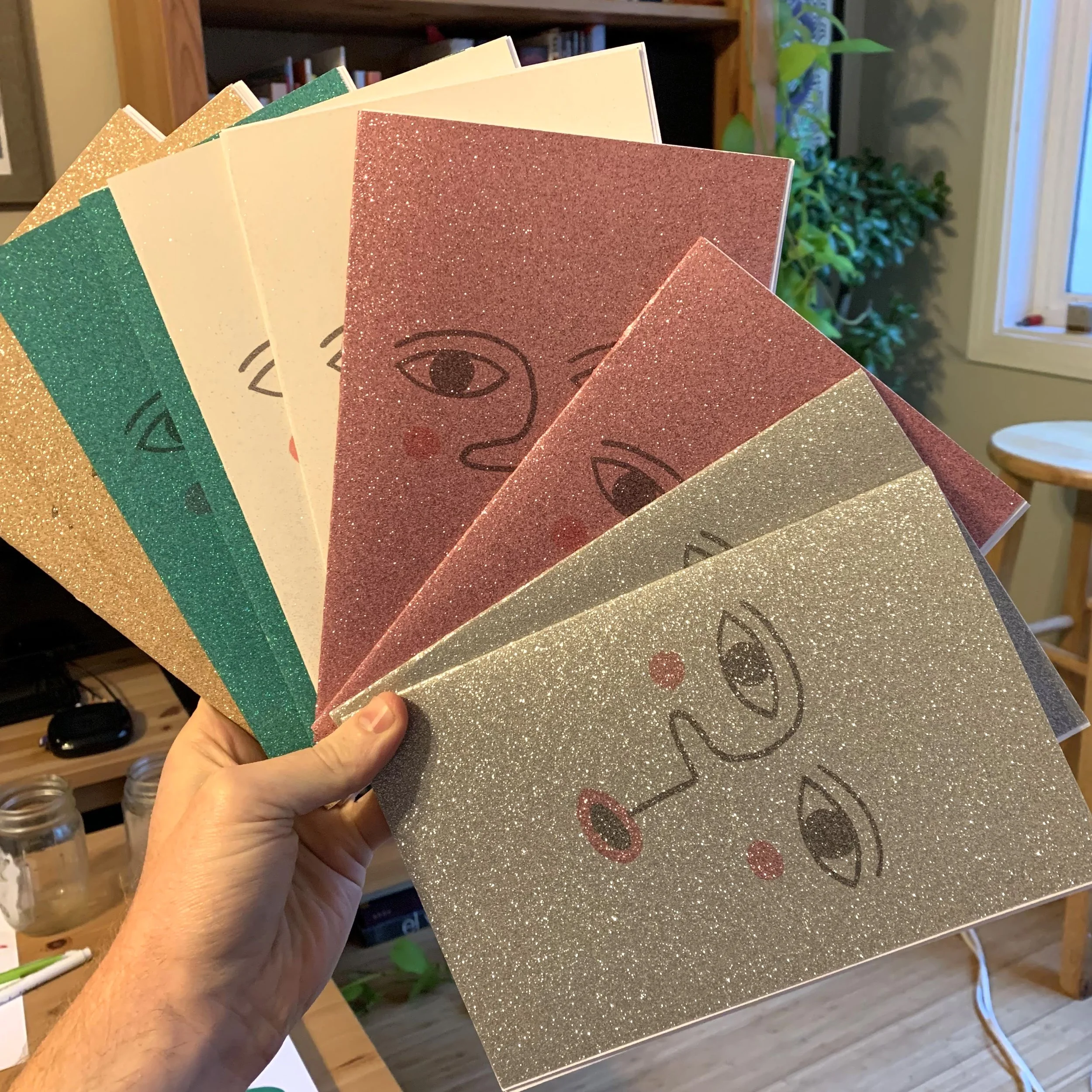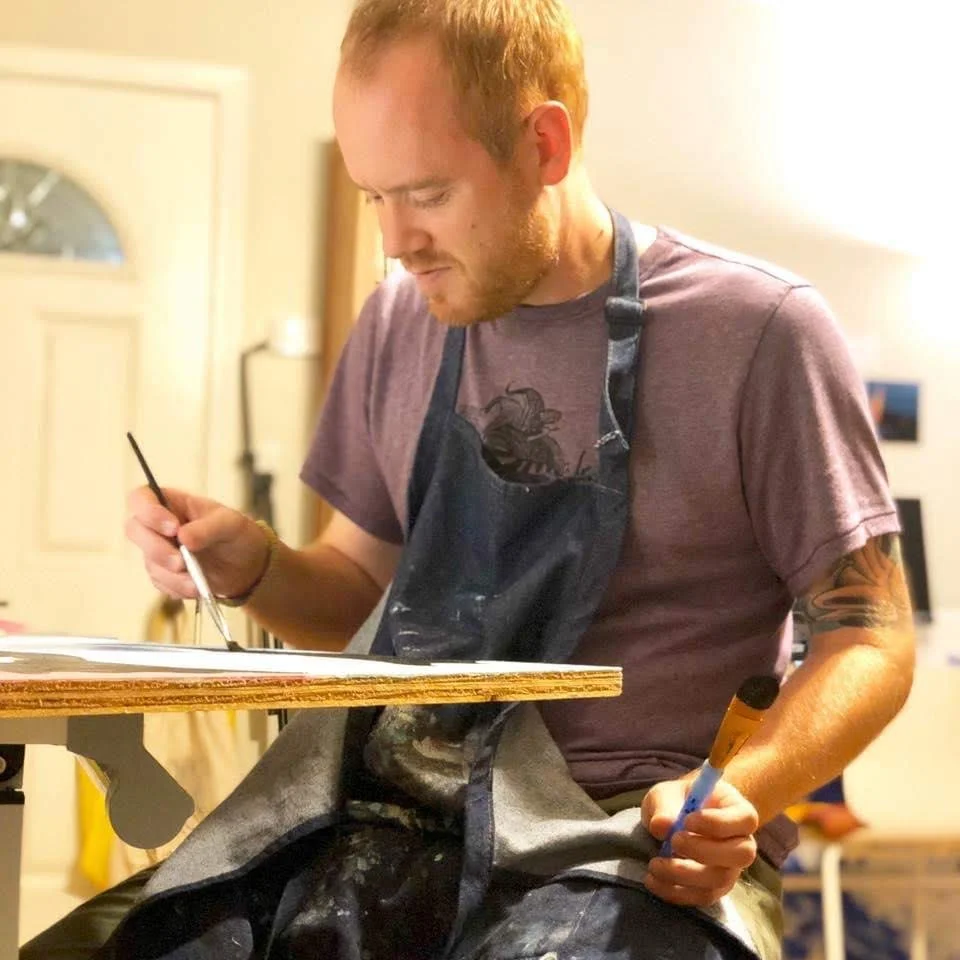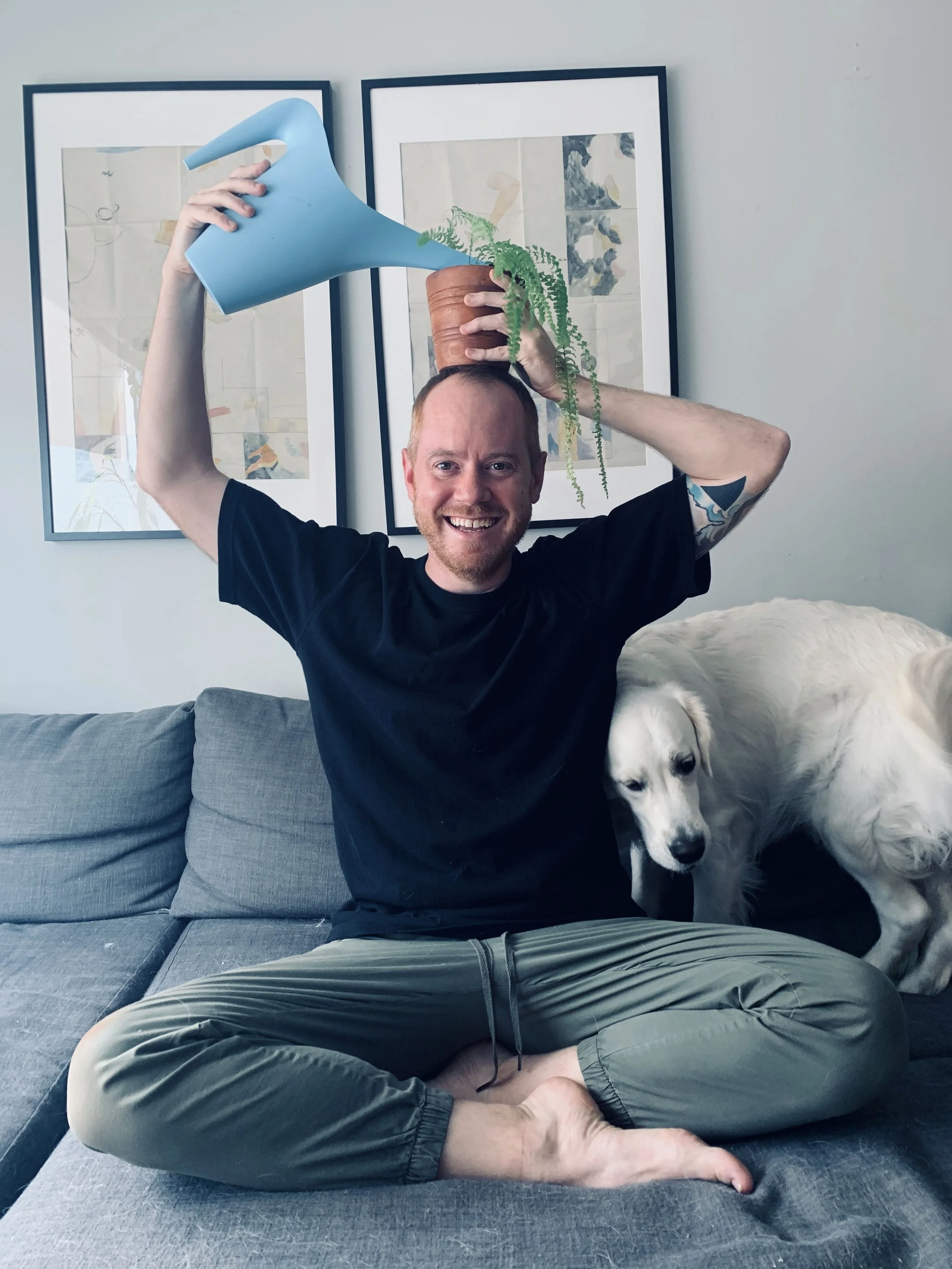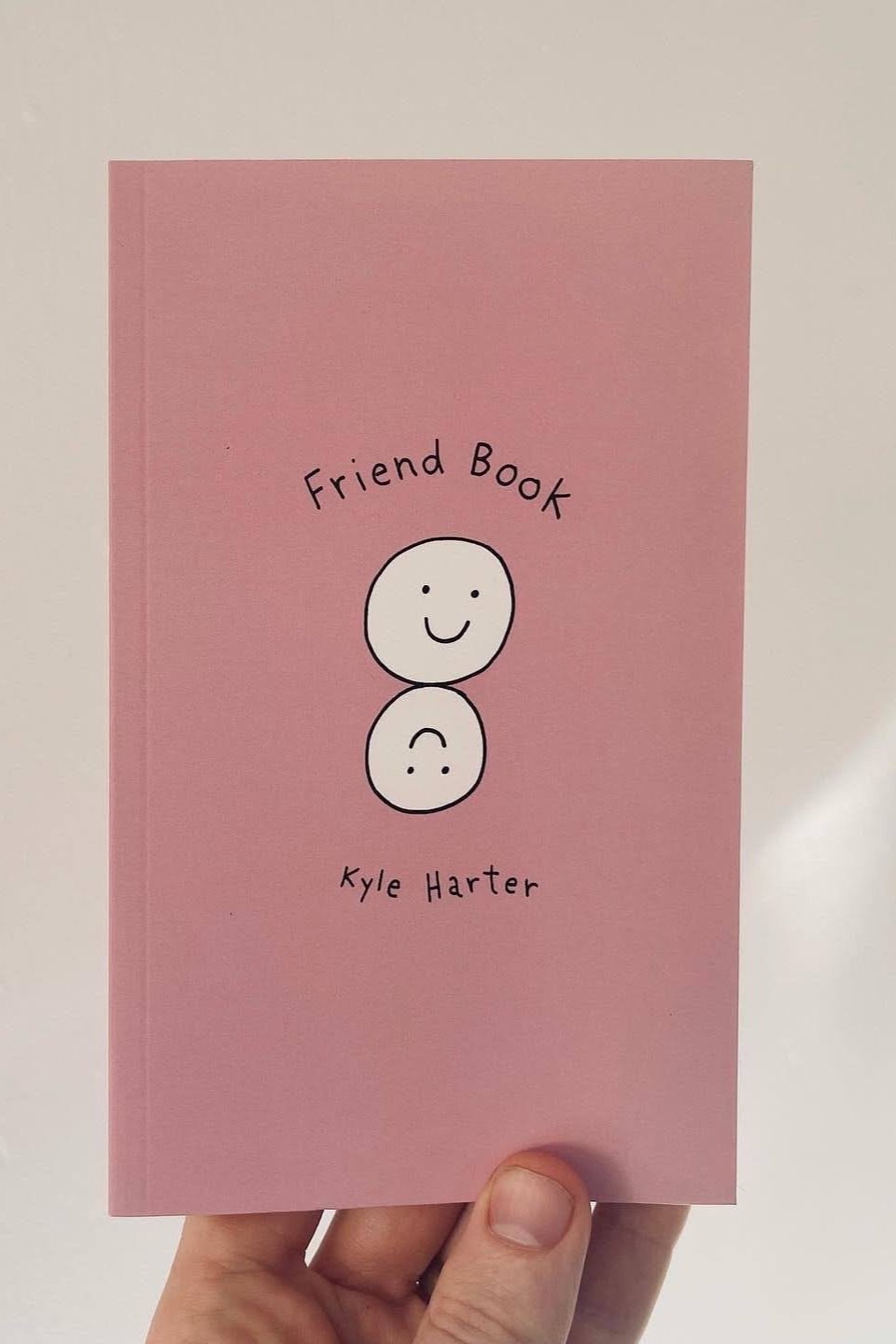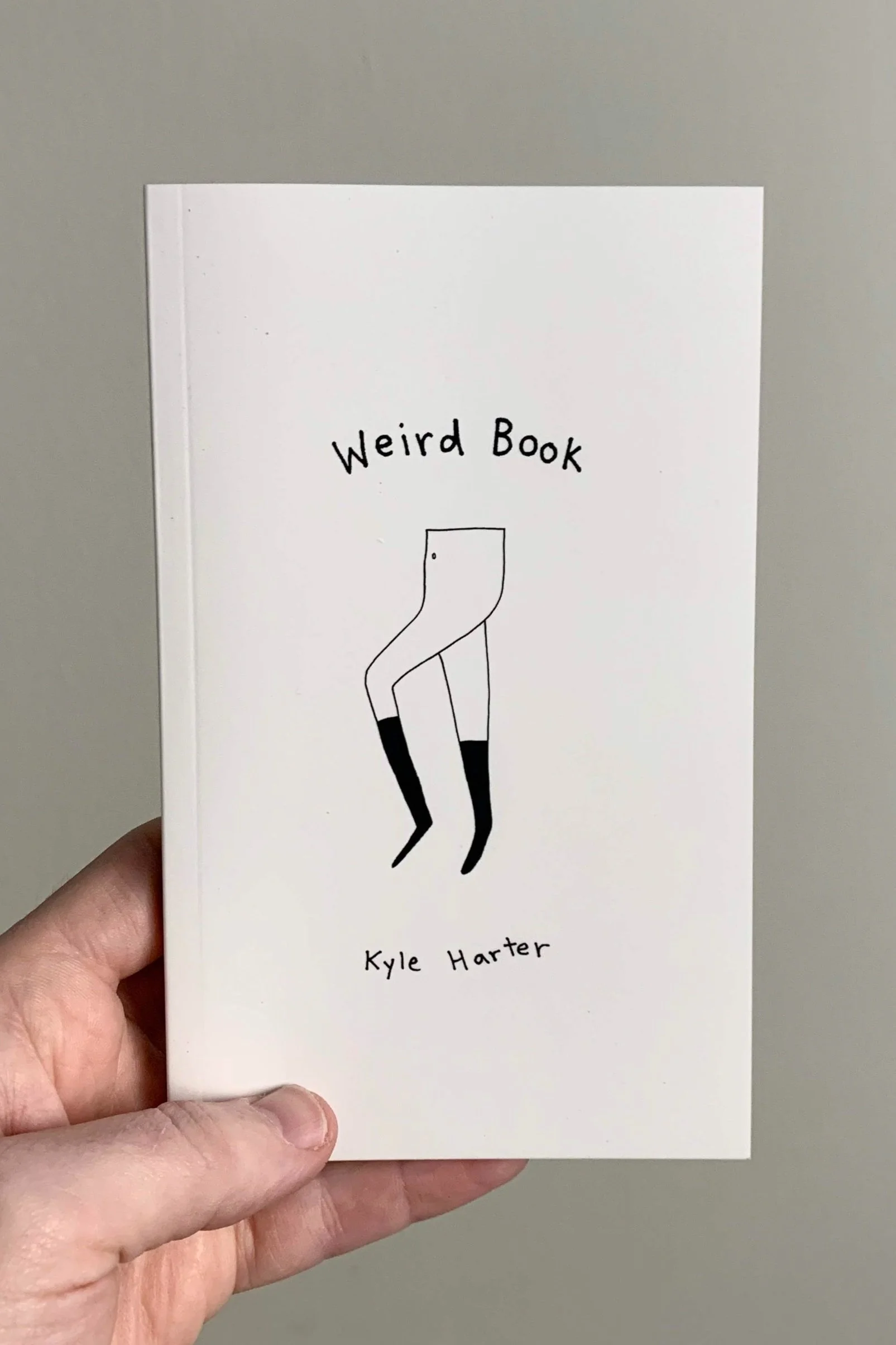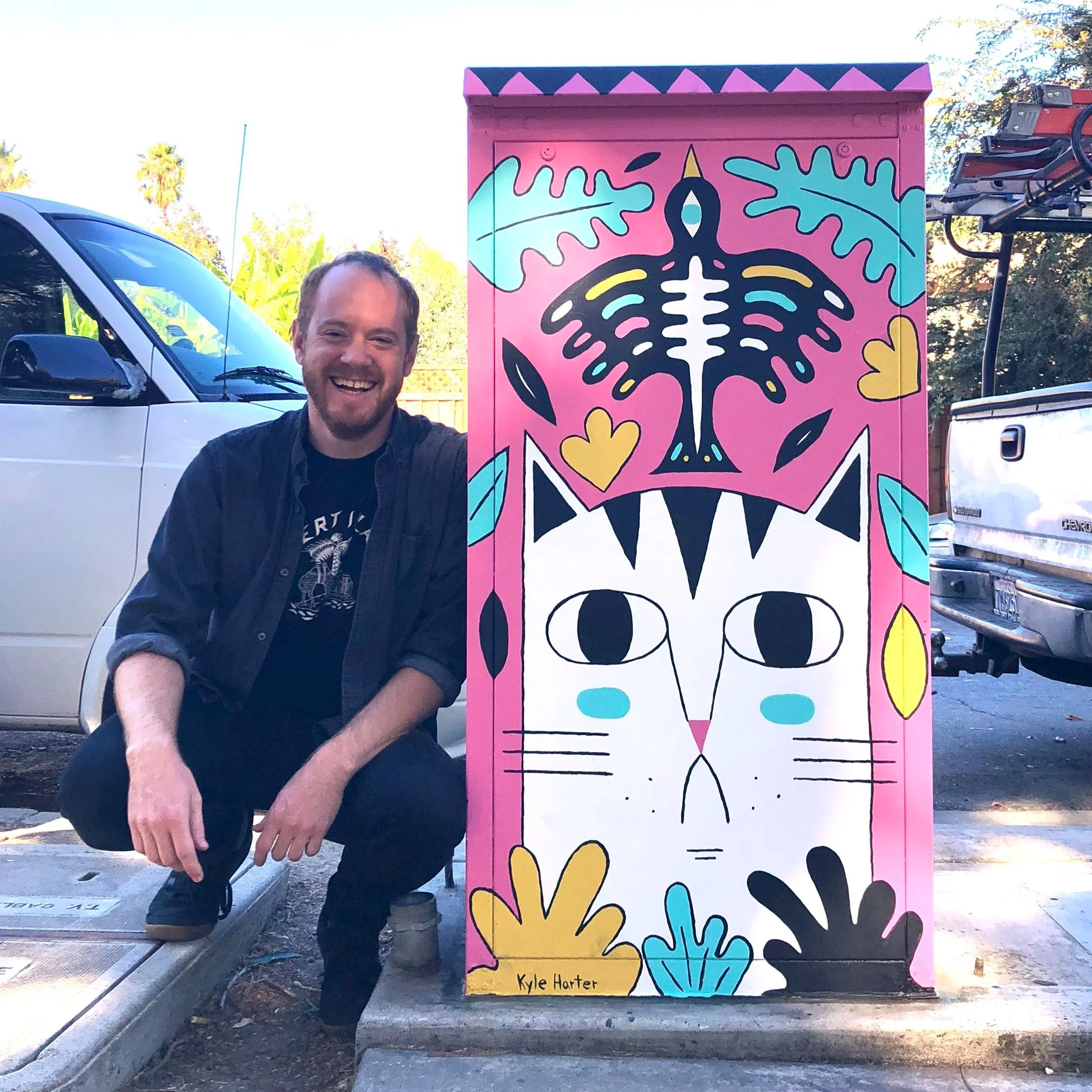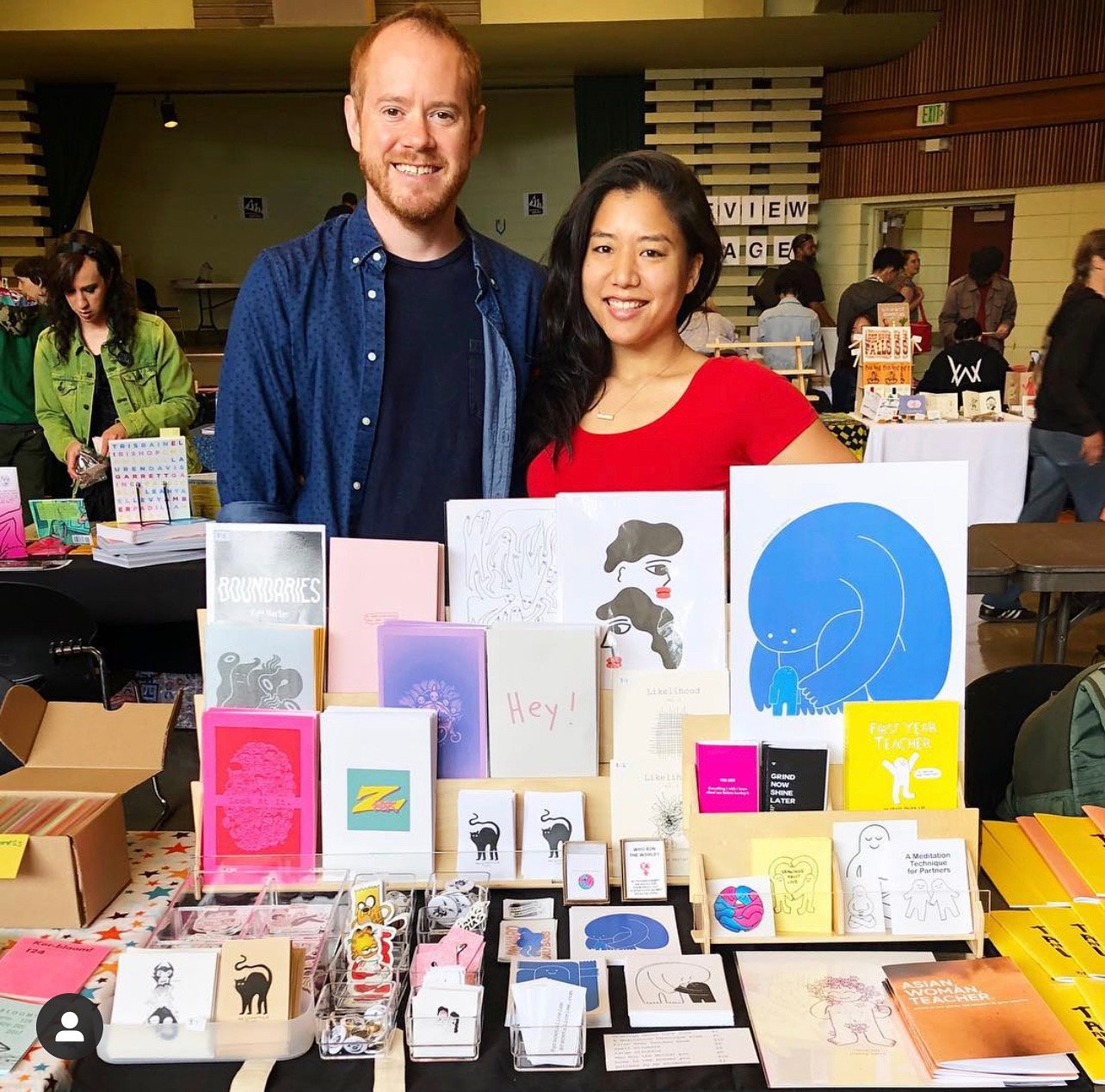In our blog series Life of an Artist, local Bay Area artists share their experience and insight in balancing their art practice with other jobs, commitments and life. I had the pleasure of interviewing these artists and invite you to learn about their takes on all things identity, balance, success, sacrifices, and advice in navigating the art world. I hope that this series can provide valuable insight to emerging young artists into the vast and varied experiences of practicing artists and careers in the arts.
-Michèle Jubilee, NUMU’s Education Programs Manager
Kyle Harter is an illustrator from San Jose, California. Their techniques and mediums range from pen and ink line drawings to prints, paintings, murals, comics, zines and art books. Embodying themes like humor, queerness, self-care, and empowerment — it’s clear that Kyle’s goal is to inform, encourage, and cultivate happiness with their audience.
Tell us about your art practice!
● What do you make? (sculptures, paintings, drawings, digital, etc.?)
“Oh my goodness, SO MUCH! Books, comics, zines, paintings, murals, prints, stickers, t-shirts, hand painted sweatshirts. I find it hard to believe that an artist in the 21st century can make it by focusing on one thing only. We have to be versatile to survive! Currently my graphic novel is taking up most of my creative energy and I’ll probably be speaking from this lens through the interview.”
Heart, 2021, Wood Cut Out Acrylic Paint
● What is your art about? What is the main message, question or goal that you are trying to communicate/represent with your art?
“My work is mostly about mental health and wellbeing. I also have recurring themes of queerness, gender, family, and spirituality. I am a Queer Buddhist and this definitely comes through in my art.
Essentially, I want to bring peace, happiness, and relief to my audience. I want my audience to feel seen, to feel not so alone in their struggles and healing journey. I tend to think about how my experience as a human can support others -- how can we become more equanimous together? How can we understand the world better? How can we find meaning in something bigger than ourselves?
Ultimately I just want to make you laugh and feel happy. But not in a codependent way of course. LOL”
● What motivates you to create?
“So I have to dissect this question a little bit. First I have to ask myself, when am I inspired?
I am mostly inspired to make art when I’m doing nothing. When I have time for my mind to wander. when I’m on a long flight. When I’m looking out the window of a crowded bus. swinging in my hammock in the backyard. Wandering on a hike. meditating. reading. listening to music. running. taking care of myself. goofing around with my partner. taking a shower. getting a massage. Playing at the dog park. When I’m living my life!
Now, What motivates me to take those creative ideas and turn them into art?
For me I have to find some sort of personal investment in what I make. It has to make me laugh, cry, groan… there has to be a shift in my spirit in order for me to make the effort and get anything off the ground. Just like I don’t want to waste your time with terrible art, I also don’t want to waste my time making it!“
Sticker, 2021
3. If I am working on a larger project then I am very targeted with my schedule. I build in extended work time on a weekly basis. Usually in the evenings, after dinner, or on the weekends.
4. I also schedule in time I do not want to work -- for example, I have an alarm that goes off at 8:30pm every night. This is my “no more work” alarm. I have to put down what I’m doing so I can unwind and sleep. Finding time to do art is not the problem. It’s finding time to relax and not do any work that seems to be the hardest thing.
Glitter Zines
● How do you make sure you have time to create? Do you have a set time or build it into your calendar?
I am very strategic about the time I spend working on my artwork. I love scheduling and time management!
I make sure I draw or create something every day! This is a priority. It feels strange when a day goes by and I have not done anything that's working towards a creative goal. At the very least, I am doodling while watching TV with my family.
I am very lucky because my day job gives me time to work on my own artwork. I am a high school art teacher so I have about three months off in the year. I usually plan out my breaks around larger projects. I worked a lot on my graphic novel during Thanksgiving break and I’ll be doing the same during the winter break. I also work my butt off at lesson planning during August so I have my prep time free throughout the year. This way I can draw or do art admin work. I also draw a lot with my students, and I teach the art I make. This way everything is streamlined! I have content to show my students and process videos I can use both on social media and in the classroom.
● What has been your biggest moment of success as an artist and why?
“My biggest success I think is when I help relieve someone else’s suffering. I wrote a graphic novel about realizing I had been abused as a young child. I had someone who had read the book come up to me and say, “You helped me uncover repressed memories in myself.” This moment actually sparked me to write in depth about my spiritual journey to healing and recovery -- to create the graphic novel I’m currently working on.
I’ve also done a lot of artwork for the LGBTQIA+ community which always makes me feel proud. In college I created animations on a film called Fish Out Of Waterthat showcased what the bible really says about homosexuality – there’s a lot more grey area and contradiction than the Church would have you think. I also have done some work for The Transgender District in San Francisco. I am queer and nonbinary and so I feel personally invested in this work. But it’s more than that, it feels like I’m actually making a difference. You know, standing on the right side of history.”
We Are The Love, 2020, Gouache
Wolf, 2021, Wood Cut Out Acrylic Paint
● What's your biggest barrier/challenge to being an artist? How do you address it?
“The world. Capitalism.
I just finished reading this amazing book,The Death of the Artist. It's about how artists are struggling to survive in the age of billionaires and big tech. It paints a really clear and realistic view of what it means to be an artist right now and what we have to do in order to survive in a world that is constantly trying to monetize their apps with free labor from artists! Tech hasn’t made it easier to be an artist. It’s made it harder!
How do I address this? I keep a steady day job. Some people try to cast shame and judgment on artists who have a 9-to-5, but I don’t accept any of that. I am no less an artist for it.”
● Have you ever said 'no' to an artistic opportunity? If so, how did you decide to say no?
“I’ve been sent screenshots of other artists' work and asked if I can reproduce it. That’s an easy “no.”You’re not hiring me for my voice, you’re just hiring my hands. Haha!
If it is a legit job and I just don’t have the time, I usually try to recommend a friend. Lots of folks just getting started need any work they can get! We all gotta buy toilet paper!”
● Can you share some insight into how you’ve learned to determine what to charge for your art or services as you’ve grown?
“I have many different price points! Anywhere from a $1 button to a $300 painting to a $5000 mural! I charge a minimum of $50 for commissions if it's a small business then I may negotiate to fit their budget
Setting prices for my art is a lot of trial and error. If I’m selling art for the first time in public, say at an art market, I set what seems like a reasonable price and then experiment from there. For example, I was selling these 5”x5” prints when I first started out. I sold them for $5 at first, and at another event I decided to make them $8 to see if they still sold as much. I think I actually sold more once I raised the price a little. Art markets are great for figuring this sort of stuff out because you get so much feedback right away. Selling things online is a whole other ballgame.”
● Do you have any tips on cultivating an audience for your art?
“Don't just rely on the internet! Get out into the public. You have to. Engage with people, form relationships, have conversations, share other artists' work, be an active member of the art community! Be real! Be honest! Have fun. Remember that audiences (and real life) exist outside of social media!”
Bigger picture!
● How do you define success as an artist?
“-Did I grow as an artist or person while doing this work?
-Am I making making meaningful work?
-Am I able to support myself with my art? Or at least, am I able to support my next project?Of course having shows, being reviewed by critics, getting published, that all seems like success too. I strive for some of that, but at the end of the day, if I’m not happy with what I’ve made and it’s just another garbage book in the bargain bin, is all of that worth it?”
● How do you manage a work-life balance as an artist?
“When I hear this question I always think about a pie chart my therapist shared with me. It’s divided into four sections: work, relationships, spirituality, and physical health. I try to keep each section of this pie the same size. This involves sacrifice and planning. It’s saying no to things so you can fill the other sections of your pie. Because at the end of the day, if I'm not paying attention to my physical health, if I’m not focusing on my spiritually or actively taking care of my mental health, and if my relationships are failing, am I going to get any quality art done? No. And what’s great is, when I feel like my pie is evenly sliced, my art flourishes! I am the most inspired!
I don’t drink. I don’t party. I keep a small friend group. I find pleasures in small things in my life, like watching my dog play at the park, or swinging in the hammock in my backyard, or laughing with my partner.”
Friend Book, 2021, Self Published Book
Weird Book, 2020, Self Published Book
● Are you currently employed elsewhere outside of your art practice, and if so, what is your job?
“I teach high school visual art at a private school. I also take on freelance illustration work occasionally.”
● How does your work as an artist inform your work in your other job and visa-versa?
“What's great about working at the school I teach at is they give me 100% creative freedom to come up with my own curriculum. This allows me to teach the art that I make! So I am making art, going to my day job and making more of that art, and teaching about that art, and teaching about the history of that art, and watching a new generation get excited about it! It’s really a dream come true. I teach zine-making, comic-making, and skateboard-painting. It’s a good ole time
What’s also great about teaching is that if I am struggling with a medium, concept, or want to know more about something, I just teach it! This forces me to do the research, practice the techniques, and really wrap my head around what I’m struggling with. I also get to see how the students approach it too. Which gives me new ideas on how to overcome challenges within my own work. I teach some really talented and skilled young people.”
● What's your tip or best way you maintain a live/work balance? Do you struggle with it? When do you know you're lacking balance?
“I think we can get into a trap as artists because even though we’re having fun with our work, it’s still work!! I remember one day recently where I worked all day on this comic and was so confused as to Why was I so exhausted. My partner said, “You’ve been working all day!'' I was like, “Oh yeah! This is work isn’t it?” So are those fun art events I do. The instagram posts I make. And giving this interview, ha ha.
I’ve had issues with this in the past. During 2020 I sprained my back in two places and for a while was 90% disabled (as measured by my physical therapist)! I couldn’t get out of bed and was in constant pain. I had a lot of time to reflect on what got me into that position. That’s why I talk so much now about the importance of doing nothing.”
● What are your ultimate career goals and how have they changed or evolved over time?
“My main goal right now is to finish this graphic novel and get it published. This has been a goal of mine for years! I feel like I’m finally nearing the precipice and I’m excited to see what happens next. I have two other graphic novels written and ready to draw, so I’m hoping something comes of this.
When I was in art school I really wanted to be famous. I really wanted to be the next big thing! But since then I’ve realized that even the next big thing eventually becomes old news. Now I just want my art to make a difference in a world filled with so much suffering. I want to do my best in alleviating some of the pain.
I think goals are healthy but It's this constant wanting that gets us into trouble. We think, “If i could just reach this career, then I’ll be happy,” “If I could just get into this gallery, then I’d be happy”, “If I could just get published, then I’d be happy” It’s never ending and we will wake up one day and wonder where our life went. It zoomed by because we were so focused on the future so much that we forgot to look around and see how much we already have.”
Little Friend, 2020, Mixed Media
● Does art help you in other areas of your life?
“Art has helped me heal my trauma. It’s helped me find peace with my identity. It’s helped me find a community. If It were not for art I would have never met my partner!”
● Is there something you do today that you wished you had known to do years ago?
“I wish I would have lived a healthier lifestyle in my 20s.”
● Do you have a network of other artists you rely on - and what do you do to support each other? Are there other key networks of support in your life?
“My biggest support is my life partner. I wouldn’t be giving this interview if it were not for them. I would still be pacing back and forth trying to finish my book. They have elevated my art just by being around me!!!
I have art friends that have helped me so much here in San Jose, I really want to name them all but then I’d be afraid I’d miss someone!
I also have a lot of comic friends that are so encouraging and positive. The indie comic scene has changed so much in the last few years. It’s become more inviting and open -- people aren’t gatekeeping so much, which is so refreshing!”
Do you have long-term goals in your art practice and career? Are they written down or how do you revisit them and make sure you are moving along that path?
“I definitely have long term goals. But I also have short term ones that help me get to that reach the longer one.One tradition I do with my partner is we make vision boards.I find these are more useful than writing it down. I’m a visual person. I think we started to do this a few years ago. I try to do this at least once a year! Believe it or not, it works! I met every one of my goals on that vision board. Well, almost. Ha ha ha.”
I Bite Racists T-shirt (Fundraiser for The Transgender District)
● Why is art important to you and for society?
“This is the guiding question I have in my classroom every single year. I want to share some answers my students have given that resonate with me.”
Art helps me express my deepest feelings that I wouldn’t be able to say in words
Art helps construct culture and it really helps build a better society
The world would be so blah blah without art. I don’t want to live in a boring world!
Art helps me feel my feelings
I don’t feel alone when I’m making art
Making art feels very healing to me. It’s time I get to spend in quiet reflection and really get in touch with myself.
● Have you had to make any sacrifices to get to where you are today?
“Of course! I have had to set down my art and pause relationships to work on healing myself. I did this for about seven years! It was a lot of healing. Deep deep healing. yes, art came from it, and it still does. But I really had to put parts of my life on hold to do this work. I had to stop going out, end certain relationships, and focus on loving myself.”
● What are your favorite and least favorite parts of professional art?
“I love the other professionals I meet! They challenge me in ways I wouldn’t have if I were doing this all alone.
I do not enjoy having to bug people for late payments and to negotiate for fair fees. Artists are professionals and deserve to be paid properly and on time.”
● Do you have a key tip for navigating this path?
“Reach out to anyone who inspires you! The internet can be your friend in this way. Recently I reached out to one of my favorite cartoonists and was so blown away by the fact that they not only responded to my message but reposted my work, agreed to an art trade, and helped console me when I want to give up! It’s also inspiring to see that these folks we look up to are just like us!”
● Do you have any words of advice for emerging artists?
“Jealousy is normal. Especially when you see the friends around you finding success at the thing you want. Feel it. Don’t deny your feelings at all! BUT if you can, try not to react. It causes more harm than anything else. Look at it this way: the people around you are finding success! Say to yourself, “Look! It’s possible!” If the people around you are getting record deals or book deals or gallery shows, It can happen to you too. Congratulate them, try to speak from an authentic place in your heart, be truly happy for them. And then get back to work.”
Posted by Michèle Jubilee, NUMU’s Education Programs Manager
